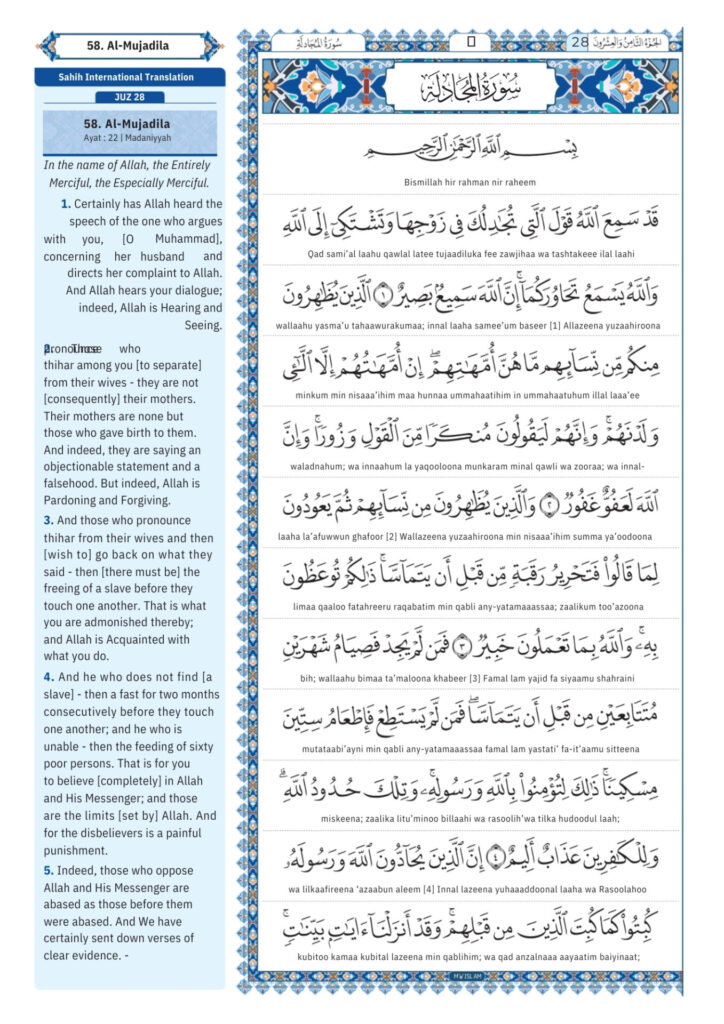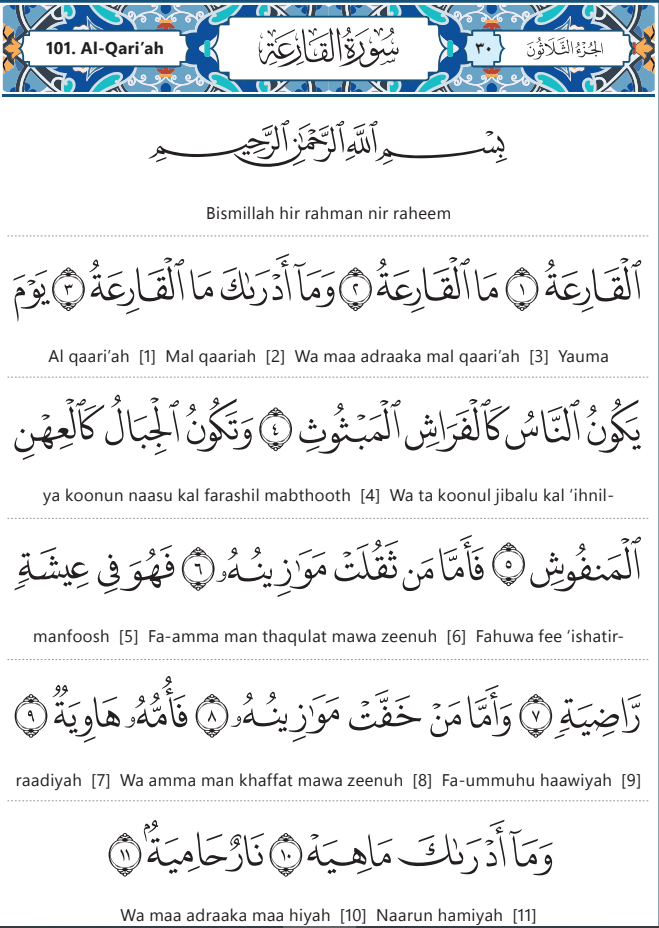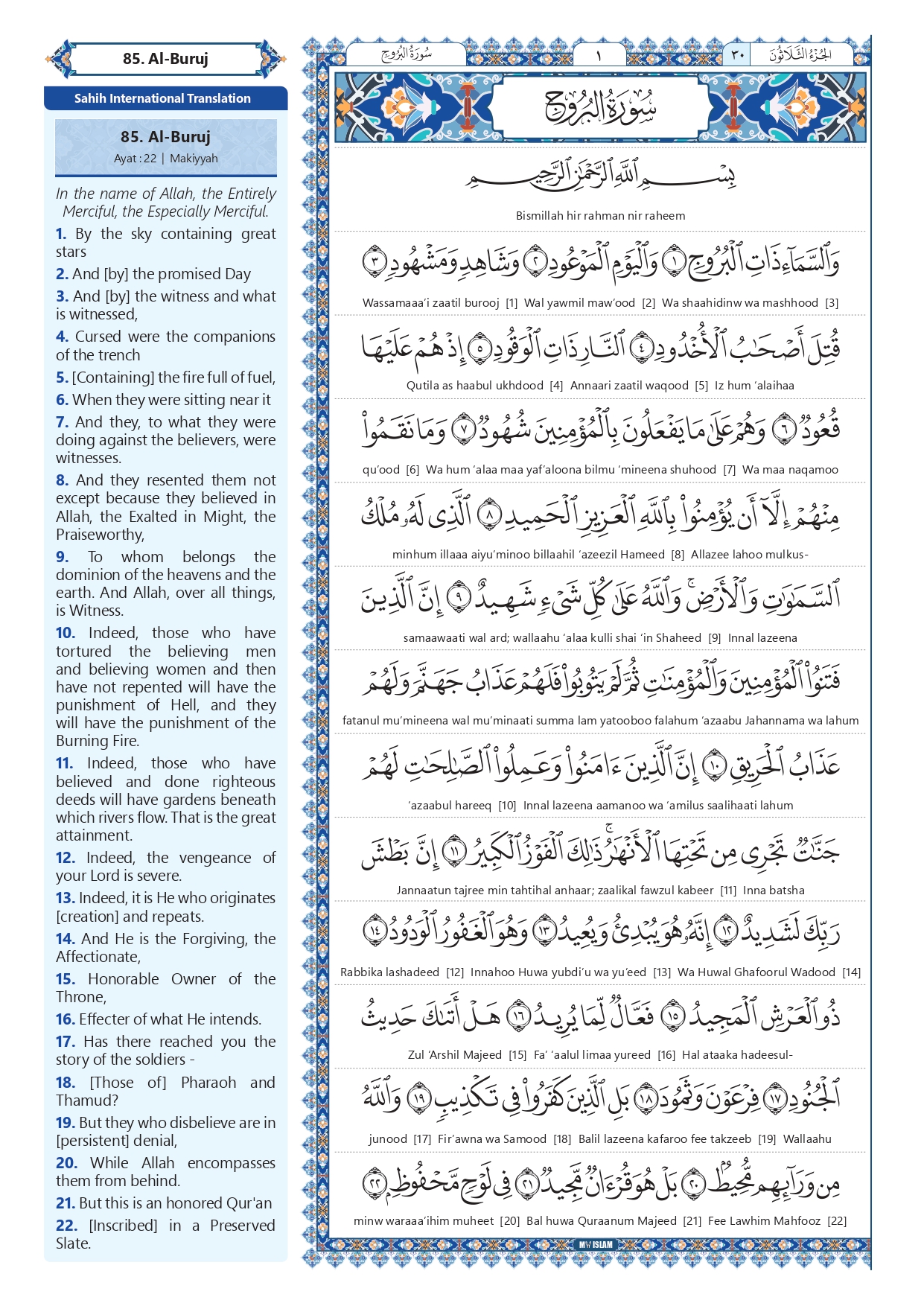Surah al mujadilah in Engilsh Transliteration (The Woman Who Disputes) is the 58th chapter of the Holy Qur’an. This Surah, which consists of 22 verses, was revealed in Medina and addresses important social and spiritual topics, such as the rights of women, family matters, and the significance of speaking the truth. It emphasizes the importance of justice, especially concerning the treatment of women.
What is Surah Al Mujadilah in Engilsh Transliteration?
Surah Al-Mujadilah is named after the incident in which a woman came to the Prophet Muhammad (peace be upon him) to plead her case about a specific type of pre-Islamic divorce known as “zihar.” The Surah highlights the woman’s struggle and Allah’s subsequent revelation, which clarified the rules and established protection for the rights of women. It also discusses the consequences of secret conversations and the importance of always being conscious of Allah’s presence.
Surah Al-Mujadila:
The story in Surah Al-Mujadila shows Allah’s awareness of every whisper.
Let it remind you He hears every prayer.

Keep Arabic-OM.com in your heart and your browser to read more of His mercy.
Full English Transliteration of Surah Al-Mujadilah
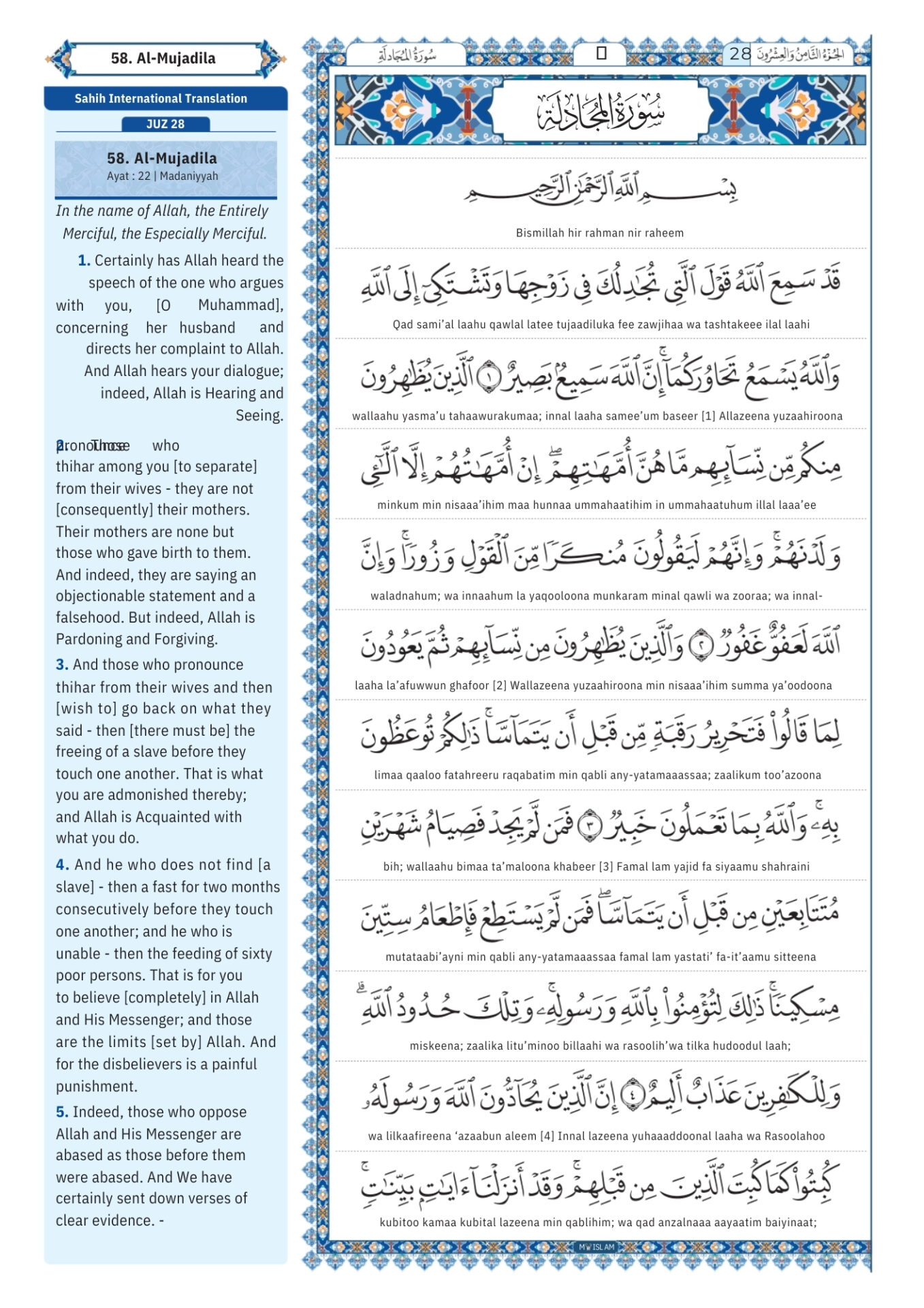
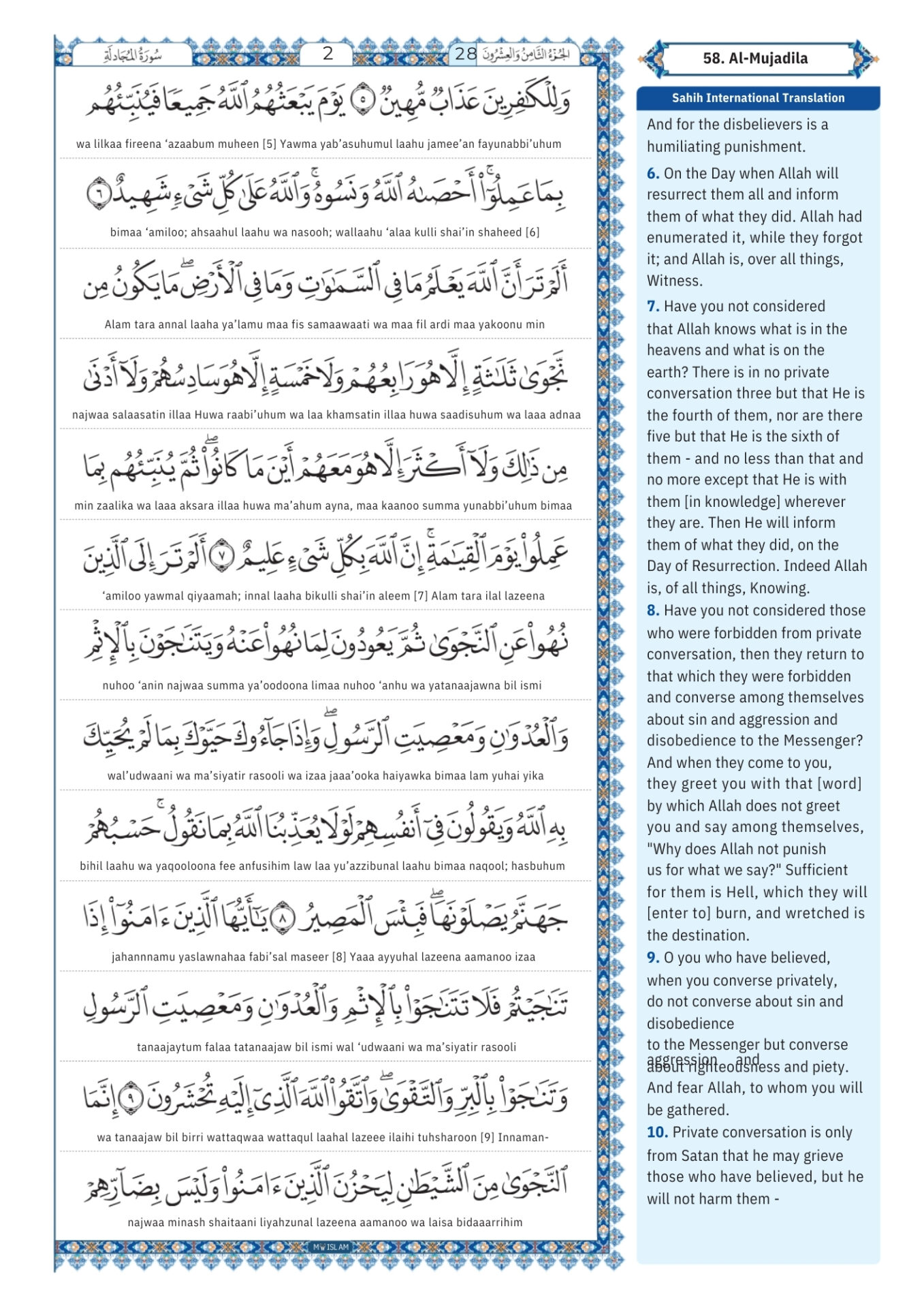
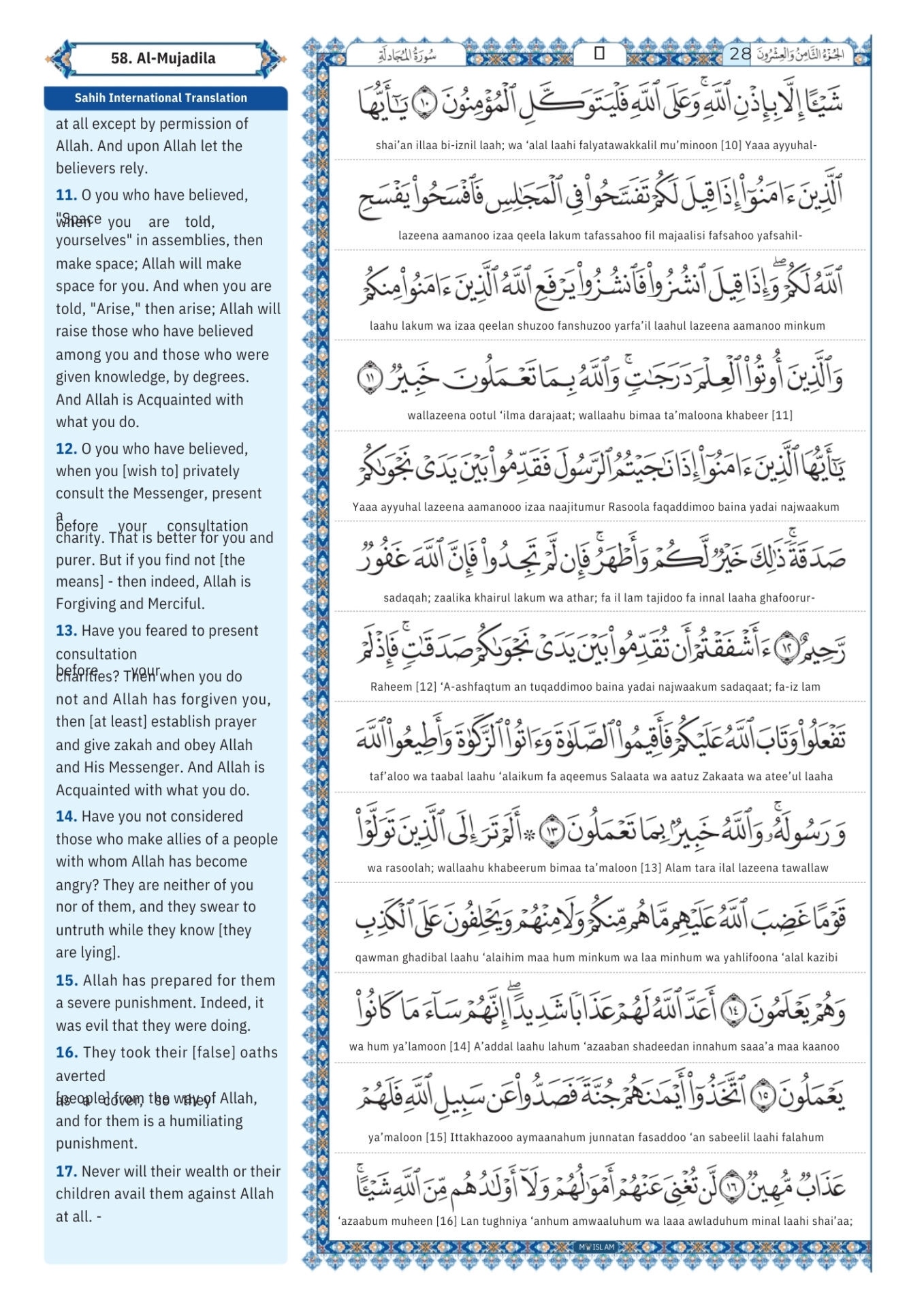
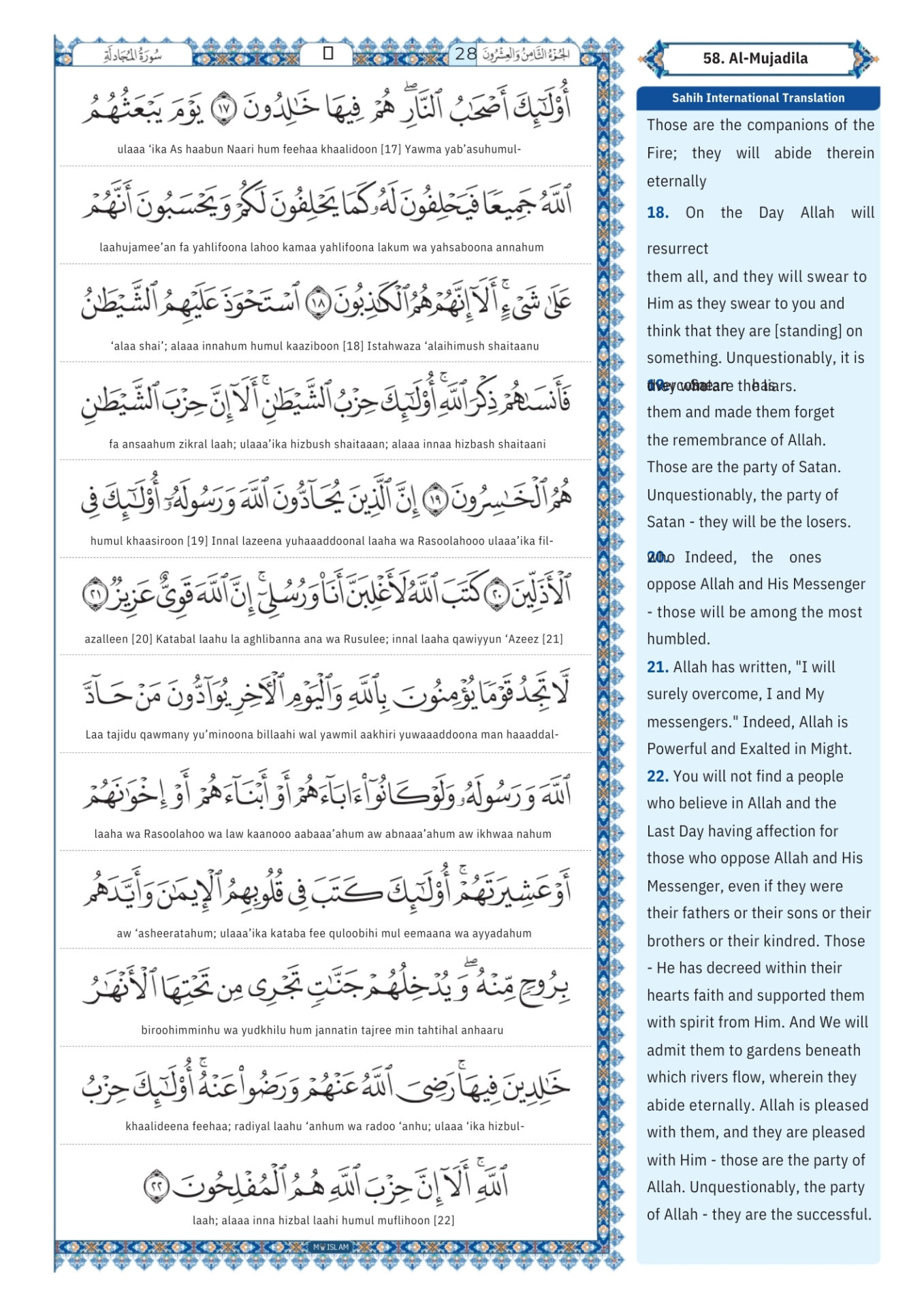
Surah Al Mujadilah in Engilsh Transliteration
A’uthu billahi min ash-shaytan ir-rajim
Bismillahir Rahmanir Raheem
- Qad sami’a Allahu qawla allatee tujadiluka fee zawjiha watashtakee ila Allahi wallahu yasma’u tahawurakuma inna Allaha samee’un baseer.
- Alladheena yuzahiroona minkum min nisa’ihim ma hunna ummahatihim in ummahatuhum illa alla’ee waladnahum wa innahum layaqooloona munkaran mina alqawli wazooran wa inna Allaha la’fuwwun ghafoor.
- Walladheena yuzahiroona min nisa’ihim thumma ya’oodoona lima qaloo fatahreeru raqabatin min qabli an yatamassaa dhalikum too’athoonabihi wallahu bima ta’maloona khabeer.
- Faman lam yajid fasiyamu shahraayni mutatabi’ayni min qabli an yatamassaa faman lam yastati’ fatta’amu sitteena miskeenan dhalika litu’minoo billaahi wa rasoolihi wa tilka hudoodu Allahi walilkaafireena ‘athaabun aleem.
- Inna alladheena yuhaddoona Allaha wa rasoolahu kubitoo kama kubita alladheena min qablihim wa qad anzalna ayatin bayyinat walilkaafireena ‘athaabun muheen.
- Yawma yab’athuhumu Allahu jamee’an fayunabbi’uhum bima ‘amiloo ahsahu Allahu wa nasoohu wallahu ‘ala kulli shay’in shaheed.
- Alam tara anna Allaha ya’lamu ma fee alssamawati wama fee al-ard ma yakoonu min najwa thalathatin illa huwa rabi’uhum wala khamsatin illa huwa sadisuhum wala adna min thalika wala akthara illa huwa ma’ahum ayna ma kanoo thumma yunabbi’uhum bima ‘amiloo yawma alqiyamati inna Allaha bi kulli shay’in ‘aleem.
- Alam tara ila alladheena nuhoo ‘ani annajwa thumma ya’oodoona lima nuhoo ‘anhu wa yatanajawna bil-ithmi wa al’udwani wa ma’siyati al-rasool wa idha jaooka hayyawka bima lam yuhayikabihi Allahu wa yaqooloona fee anfusihim lawla yu’aththibuna Allahu bima naqool nasfi’kum jahannama wa la-bi’sa al-maseer.
- Ya ayyuhalladheena amanoo idha tanajaytum fala tatanajaw bil-ithmi wa al’udwani wa ma’siyati al-rasool wa tanajaw bil-birri wa al-taqwa wattaqoo Allaha alladhee ilayhi tuhsharoon.
- Innama annajwa mina al-shaytani liyahzuna alladheena amanoo wa laysa bidarrihim shay’an illa bi-idhni Allah wa ‘ala Allahi falyatawakkali al-mu’minoon.
- Ya ayyuhalladheena amanoo idha qeela lakum tafassahoo fee al-majalisi fafsahoo yafsahi Allahu lakum wa idha qeela anshuzoo fanshuzoo yarfa’i Allahu alladheena amanoo minkum wa alladheena ootoo al-ilma darajat wallahu bima ta’maloona khabeer.
- Ya ayyuhalladheena amanoo idha najaytum al-rasoola faqaddimoo bayna yadayi najwakum sadaqatan dhalika khayrun lakum wa atharu fa-in lam tajidoo fa-inna Allaha ghafoorun raheem.
- Aashfaqtum an tuqaddimoo bayna yadayi najwakum sadaqatan fa-idh lam taf’aloo wa taba Allahu ‘alaykum faqeemoo al-salata wa aatoo al-zakata wa atee’u Allaha wa rasoolahu wallahu khabeerun bima ta’maloon.
- Alam tara ila alladheena tawallaw qawman ghadiba Allahu ‘alayhim ma hum minkum wala minhum wa yaqsimoon ‘ala alkadhibi wahum ya’lamoon.
- A’add Allahu lahum ‘adhaban shadeeda inna hum saa’a ma kanoo ya’maloon.
- Ittakhadoo aymanahum junnatan fasadoo ‘an sabeeli Allahi fahum lahum ‘adhabun muheen.
- Lan tughnee ‘anhum amwalahum wala awladuhum min Allahi shay’an ulaa’ika as-habu an-nari hum feeha khalidoon.
- Yawma yab’athuhumu Allahu jamee’an fayahlifoona lahu kama yahlifoona lakum wa yahsaboona annahum ‘ala shay’in ala innahum hum al-kathiboon.
- Istahwadha alayhimu al-shaytan fa ansaahum dhikr Allahi ulaa’ika hizbu al-shaytan ala inna hizba al-shaytani hum al-khasiroon.
- Inna alladheena yuhaddoona Allaha wa rasoolahu ulaa’ika fee al-adhalleen.
- Kataba Allahu la’aghlibanna ana wa rusulee inna Allaha qawiyyun azeez.
- La tajidoo qawman yu’minoon billahi wal-yawm al-akhir yuwaddoona man hadd Allaha wa rasoolahu walaw kanoo aba’ahum aw abna’ahum aw ikhwanahum aw ashiratahum ulaa’ika kataba Allahu fee quloobihim al-eemana wa ayyadahum biroohin minhu wa yudkhiluhum jannatin tajree min tahtiha al-anhar khalideena feeha radiya Allahu ‘anhum wa radu ‘anhu ulaa’ika hizb Allah ala inna hizba Allahi hum al-muflihoon.
English Translation:
- Certainly has Allah heard the speech of the one who argues with you, [O Muhammad], concerning her husband and directs her complaint to Allah. And Allah hears your dialogue; indeed, Allah is Hearing and Seeing.
- Those who pronounce thihar among you [to separate] from their wives – they are not [consequently] their mothers. Their mothers are none but those who gave birth to them. And indeed, they are saying an objectionable statement and a falsehood. But indeed, Allah is Pardoning and Forgiving.
- And those who pronounce thihar from their wives and then [wish to] go back on what they said – then [there must be] the freeing of a slave before they touch one another. That is what you are admonished thereby; and Allah is Aware of what you do.
- And he who does not find [a slave] – then a fast for two months consecutively before they touch one another; and he who is unable – then the feeding of sixty poor persons. That is for you to believe [completely] in Allah and His Messenger; and those are the limits [set by] Allah. And for the disbelievers is a painful punishment.
- Indeed, those who oppose Allah and His Messenger are abased as those before them were abased. And We have certainly sent down verses of clear evidence. And for the disbelievers is a humiliating punishment.
- On the Day Allah will resurrect them all and inform them of what they did. Allah had enumerated it, while they forgot it; and Allah is, over all things, Witness.
- Have you not considered that Allah knows what is in the heavens and what is on the earth? There is no private conversation among three, but that He is the fourth of them, nor among five, but that He is the sixth of them – and no less than that and no more except that He is with them wherever they are. Then He will inform them of what they did, on the Day of Resurrection. Indeed Allah is, of all things, Knowing.
- Have you not considered those who were forbidden from private conversation and then return to that which they were forbidden and converse among themselves about sin and aggression and disobedience to the Messenger? And when they come to you, they greet you with that [word] by which Allah does not greet you and say among themselves, “Why does Allah not punish us for what we say?” Sufficient for them is Hell, which they will [enter to] burn, and wretched is the destination.
- O you who have believed, when you converse privately, do not converse about sin and aggression and disobedience to the Messenger but converse about righteousness and piety. And fear Allah, to whom you will be gathered.
- Private conversation is only from Satan that he may grieve those who have believed, but he will not harm them at all except by permission of Allah. And upon Allah let the believers rely.
The Importance and Benefits of Surah Al Mujadilah in Engilsh Transliteration
- Protection of Women’s Rights: This Surah stands as a testament to the Qur’an’s emphasis on justice and fairness, especially for women. It lays down rules to prevent the mistreatment of women.
- Reminder of Allah’s Omniscience: The Surah reminds believers that Allah is aware of everything, including private conversations, and calls for mindfulness.
- Guidance on Social Matters: The Surah addresses family disputes and how to handle them with dignity and respect, providing guidance to build a just and ethical society.
How to Memorize Surah Al Mujadilah in Engilsh Transliteration
Memorization Tips:
- Section by Section: Break down the Surah into small, manageable parts and focus on one section at a time.
- Repetition: Regularly repeat the verses to solidify your memory.
- Understand the Meaning: Learning the translation and context of the verses helps deepen your connection to the words.
How to Recite Surah Al Mujadilah in Engilsh Transliteration
Recitation Guidance:
- Use Proper Tajweed: Learning the rules of tajweed is crucial to pronounce each letter correctly.
- Practice with Audio: Listen to a recitation of the Surah to master the pronunciation and rhythm.
- Join Our Free Learning Program: We offer lessons to help you recite and understand the Qur’an properly.
surah hashr in Engilsh Transliteration ead Surah al mumtahanah online 61
Surah Al Mujadilah in Engilsh Transliteration Word by Word
To help you learn accurately, we provide a word-by-word breakdown of the Surah, making it easier for you to follow and understand each word’s pronunciation and meaning.
Learn the Qur’an with Us for Free
Our free educational platform is dedicated to helping everyone learn and understand the Qur’an. We offer transliterations, translations, video tutorials, and personalized support to enhance your learning experience. Join us to explore the divine words of Allah and grow spiritually.
Frequently Asked Questions (FAQ) Surah Al Mujadilah in Engilsh Transliteration
- What is the main theme of Surah Al Mujadilah in Engilsh Transliteration?
The Surah addresses family disputes, specifically concerning zihar, and highlights the importance of justice and equality. - How many verses are there in Surah Al Mujadilah in Engilsh Transliteration?
It consists of 22 verses. - Why is Surah Al Mujadilah in Engilsh Transliteration significant?
It upholds women’s rights and emphasizes the omnipresence and knowledge of Allah. - Can this Surah be recited to seek justice?
Yes, reciting it reminds us of Allah’s justice and His awareness of all matters. - How can I memorize Surah Al Mujadilah in Engilsh Transliteration?
Use repetition, break it into smaller sections, and practice daily while understanding its meaning. - What are the benefits of reciting Surah Al Mujadilah in Engilsh Transliteration?
Reciting it serves as a reminder of Allah’s awareness of our actions and encourages fairness and respect. - What does the term ‘zihar’ mean?
Zihar refers to a pre-Islamic form of divorce, which is addressed and reformed in this Surah. - Why is zihar mentioned in this Surah?
It addresses a woman’s complaint about the unfairness of zihar, leading to a revelation that upholds justice. - Is there a video guide available for Surah Al Mujadilah in Engilsh Transliteration?
Yes, we provide a video guide to help you learn the correct pronunciation and understanding. - Where can I learn the Qur’an with proper tajweed for free?
Our platform offers comprehensive resources, including video lessons and one-on-one guidance.
